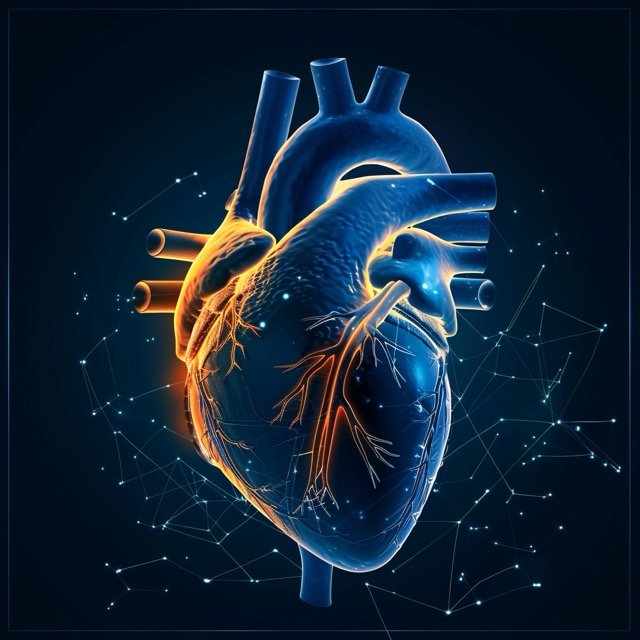DASH Diet: The Incredible Results You Won’t Believe Try It!
The DASH Diet, which stands for Dietary Approaches to Stop Hypertension, is a dietary plan developed to combat high blood pressure, a worldwide health issue. This eating plan emphasizes consuming fruits, vegetables, whole grains, and lean proteins while reducing the intake of sodium, saturated fats, and added sugars.
Since its inception, the DASH Diet has gained widespread recognition for its effectiveness in lowering blood pressure and its potential benefits in promoting overall health and preventing chronic diseases.
In this article, we will delve into the essential aspects of the DASH Diet, providing a comprehensive review that will help you understand its principles, benefits, and practical implementation. We aim to equip you with the knowledge needed to incorporate the DASH Diet into your lifestyle and reap its numerous health benefits.
Key Points of the DASH Diet

1. Core Principles and Food Groups
The DASH Diet is structured around specific dietary guidelines that prioritize nutrient-dense foods. The key food groups and their recommended servings include:
- Fruits and Vegetables: At the heart of the DASH Diet are fruits and vegetables, which are rich in essential vitamins, minerals, and fiber. The diet recommends 4-5 servings of fruits and vegetables daily.
- Whole Grains: Whole grains such as brown rice, oats, and whole wheat bread are preferred over refined grains. The diet suggests 6-8 servings of whole grains daily.
- Lean Proteins: Lean sources of protein, including poultry, fish, and legumes, are encouraged. Red meat consumption is limited. The diet advises 2 or fewer servings of lean meats, poultry, and fish per day.
- Dairy: Low-fat or fat-free dairy products are recommended, with a suggested 2-3 servings per day.
- Nuts, Seeds, and Legumes: These are excellent sources of protein, healthy fats, and fiber. The diet recommends 4-5 servings per week.
- Fats and Oils: Healthy fats from sources like olive oil are encouraged, while saturated fats and trans fats should be minimized. The diet advises 2-3 servings of fats and oils per day.
- Sweets and Added Sugars: Consumption of sweets and sugary beverages should be limited to no more than 5 servings per week.
2. Sodium Reduction
One of the primary goals of the DASH Diet is to reduce sodium intake, which is directly linked to lower blood pressure. The standard DASH Diet limits sodium intake to 2,300 milligrams per day, aligning with most adults’ recommended limit. For individuals seeking even greater blood pressure reductions, the lower sodium version of the DASH Diet restricts sodium to 1,500 milligrams per day.
3. Nutrient-Rich Foods
The DASH Diet emphasizes foods that are rich in nutrients such as potassium, calcium, magnesium, and fiber. These nutrients are crucial in regulating blood pressure and supporting overall cardiovascular health. For example, potassium helps balance sodium levels in the body, while calcium and magnesium contribute to the proper functioning of blood vessels.
Practical Examples and Meal Ideas

Implementing the DASH Diet can be straightforward, with a few practical adjustments to your daily meals. Here are some meal ideas that align with DASH principles:
- Breakfast: Start your day with a bowl of oatmeal topped with fresh berries and a sprinkle of flaxseeds. Pair it with a glass of low-fat milk.
- Lunch: Enjoy a quinoa salad with mixed greens, cherry tomatoes, cucumbers, and grilled chicken. Drizzle with a lemon vinaigrette.
- Snack: Opt for a handful of unsalted almonds or an apple with a small portion of peanut butter.
- Dinner: Grill a salmon fillet with steamed broccoli and baked sweet potato—season with herbs and a dash of olive oil.
- Dessert: Satisfy your sweet tooth with a bowl of Greek yogurt topped with sliced peaches and a drizzle of honey.
Benefits of the DASH Diet

1. Blood Pressure Reduction
The primary benefit of the DASH Diet is its effectiveness in lowering blood pressure. Numerous studies have shown significant reductions in both systolic and diastolic blood pressure among individuals who follow the DASH eating plan.
For instance, a study published in the “New England Journal of Medicine” found that participants who adhered to the DASH Diet experienced reductions in blood pressure comparable to those achieved with medication.
2. Weight Management
The DASH Diet can also aid in weight management. Focusing on nutrient-dense, low-calorie foods helps individuals achieve a healthy weight. The emphasis on whole grains, lean proteins, and vegetables promotes satiety and reduces overall calorie intake, making it easier to maintain a healthy weight.
3. Improved Heart Health
Beyond blood pressure control, the DASH Diet contributes to overall heart health. The diet’s focus on reducing saturated fats, trans fats, and cholesterol helps lower the risk of cardiovascular diseases. Including heart-healthy fats from sources like nuts, seeds, and fish further supports cardiovascular health.
4. Prevention of Chronic Diseases
The nutrient-rich foods emphasized in the DASH Diet provide a wide range of vitamins, minerals, and antioxidants that can help prevent chronic diseases such as type 2 diabetes, stroke, and certain cancers. For example, the high fiber content from whole grains and vegetables aids in blood sugar regulation and promotes digestive health.
Supporting Data and Case Studies

Numerous studies and case studies have substantiated the benefits of the DASH Diet. For instance:
- Study on Blood Pressure: The DASH-Sodium trial, funded by the National Heart, Lung, and Blood Institute, demonstrated that reducing sodium intake in conjunction with the DASH Diet significantly lowered blood pressure in participants.
- Weight Loss and Heart Health: A study published in the “Journal of the American College of Cardiology” found that the DASH Diet not only improved blood pressure but also led to significant weight loss and improved cholesterol levels.
- Diabetes Prevention: Research published in “Diabetes Care” showed that adherence to the DASH Diet was associated with a lower risk of developing type 2 diabetes, highlighting its potential in preventing this chronic disease.
Conclusion
The DASH Diet is a highly effective dietary approach for managing blood pressure and promoting overall health. By focusing on nutrient-dense foods, reducing sodium intake, and incorporating a variety of food groups, the DASH Diet offers a balanced and sustainable eating plan that can be easily integrated into daily life.
Summary of Main Ideas
- Core Principles: Emphasis on fruits, vegetables, whole grains, lean proteins, and low-fat dairy, with limited sodium, fats, and sugars.
- Health Benefits: Significant reductions in blood pressure, improved heart health, weight management, and prevention of chronic diseases.
- Supporting Evidence: Numerous studies and clinical trials demonstrate the effectiveness of the DASH Diet in improving health outcomes.
Further Reading and Action Items
For those interested in exploring the DASH Diet further, consider the following steps:
- Consult with a Healthcare Provider: Before making any significant dietary changes, it is advisable to consult with a healthcare provider, especially if you have existing health conditions.
- Read Detailed Guides: Books like “The DASH Diet Action Plan” by Marla Heller offer in-depth insights and practical tips for following the DASH Diet.
- Join Support Groups: Online forums and local support groups can provide motivation and share experiences with others who are also following the DASH Diet.
- Experiment with Recipes: Incorporate DASH-friendly recipes into your meal planning to keep your diet varied and enjoyable.
By understanding and embracing the principles of the DASH Diet, you can take proactive steps towards better health and well-being. Start today and experience the positive impact of this scientifically-backed dietary approach.
By following this comprehensive guide, you will be well-equipped to incorporate the DASH Diet into your lifestyle and enjoy its numerous health benefits. Always seek guidance from a healthcare professional for more information and personalized advice. We are always happy to provide you with information here at FittBeat.







